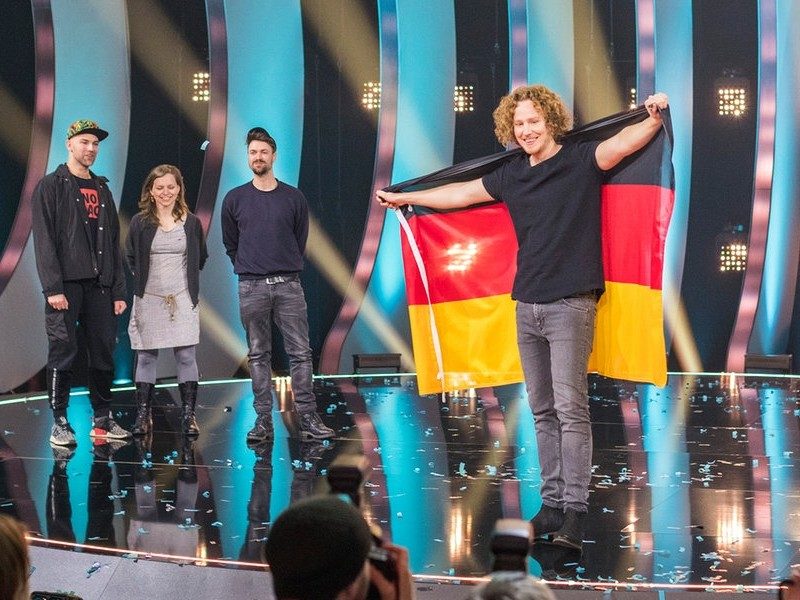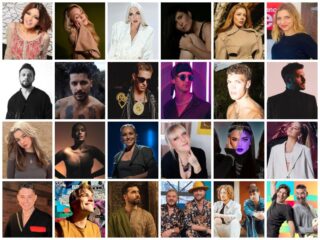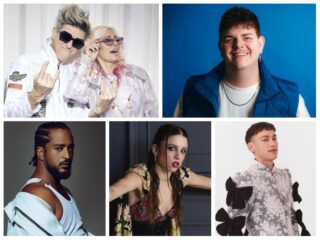On Thursday German Broadcaster NDR revealed the six finalists for the national final Unser Lied für Israel: Aly Ryan, BB Thomaz, Linus Bruhn, Gregor Hägele, lilly among clouds and Makeda.
The news comes as Germany takes the next step in its Eurovision process. Since Monday the artists have been involved in a songwriting camp in Berlin, working with composers and writers with the hope of creating the next Eurovision winner.
It surely is an art of its own to understand the whole process the German artists have gone through so far, so here is an overview of what happened. Just in case you’re joining the party a bit late!
Application
After Germany got their Eurovision mojo back with a fourth-place finish in Lisbon with Michael Schulte’s ballad “You Let Me Walk Alone”, the German broadcaster opened applications for all those who at least are 18 years of age. The application phase ended on 31 July.
The Eurovision panel and professional jury
The production team evaluated 965 acts and reduced them down to 198 candidates for the next round. The Eurovision Panel — composed of 100 German Eurovision fans – then gathered to pick the top 50 from these candidates. The fans were specifically chosen to represent a cross-section that reflect the general tastes of the Eurovision voting public.
After the panel filtered out the 50 best artists, the professional jury — made up of 20 experts from 20 different countries — rated the 50 artists and reduced them down to the top 20. Those artists then received an invitation to a special workshop, where they created videos which were subsequently evaluated by jurors. Based on that the candidates were culled further.
The Songwriting Camp
More than 150 songs have already been received but as with last year’s process, there will be new songs written in the songwriting camp, which started on Monday in Berlin. You’ll recall that Germany was a bit late last season, as its songwriting camp started in January.
The finalists have the chance to make music and are supported by 24 different songwriters, lyricists, composers and producers. Among them is music publisher and label director Lars Ingwersen, who participated last year, and Tim Schou, who represented Denmark in 2011 as a member of “A Friend in London” and reached fifth place.
During the five-day camp the artists and songwriters are producing new songs, snippets, music and lyrics, as well as improving on existing ideas from the artists and songwriters. The artists can also choose their Eurovision song outside from the camp. Broadcaster NDR wants to make sure that the finalists have complete artistic freedom in composing and choosing their songs.
Furthermore, NDR is also working with even more acts and their songs parallel to the songwriting camp. That means that other acts will join the six known finalists in the German national final. The panel and jury will decide which of these act-song-combinations will make it to the national final. A total of eight artists can compete in the German national final in 2019.
What next?
After the six finalists finish all their songs, they can choose which song to compete with in the national final. The Eurovision Panel and the professional jury will give their assessment about which songs they would vote vote for in the final, but it’s just an assessment. The artists can choose their song independently from that.
What do you think about the German selection process? Do too many cooks spoil the broth? Or is this the rigorous and scientific approach you crave? Let us in the comment section below!











Great! I know, our selection process is complicated, but this is the best summary that wiwibloggs could have given! 🙂 I am especially interested in the song they will write with Aly Ryan, she is the hyped Fan Favorite of the commentators on the German fanpage. And she is so nice, replying, giving hearts, talking to fans… Aly for Gold <3